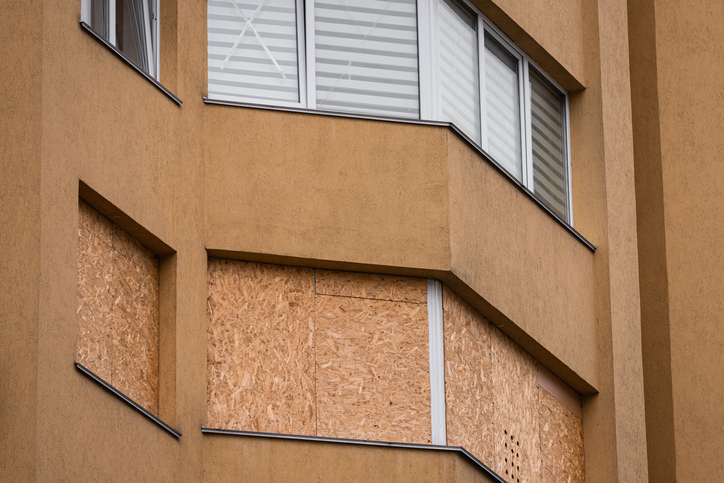One Housing’s poor record keeping compounds resident distress and landlord failings
15 February 2024
The Ombudsman found severe maladministration by One Housing Group in its record keeping following failures to resolve repair issues, the lack of clear service charge information, and the treatment of a resident’s complaints, all of which caused distress and inconvenience to the resident.

The Housing Ombudsman found severe maladministration by One Housing Group in its record keeping following the landlord’s failure to address repair issues, lack of clear service charge information, and mishandling of resident complaints, resulting in distress and inconvenience for the resident.
This failure in record keeping had a detrimental impact on the landlord’s repair and complaint handling operations. These failures have had significant consequences, causing unnecessary distress and inconvenience to the resident.
With the important role that social housing has to play in giving safe and secure housing to millions, the learning in these reports should help landlords provide effective services that protect this aspiration.
The Ombudsman found that the resident, a tenant with two young children, had to continually chase the landlord to fix repairs to the walls, which took around 14 months to be corrected despite the landlord eventually admitting their mistakes.
Delays were found in fixing windows, taking about 15 months to address the issue, causing a total delay of over 2 years. The resident had a hard time contacting the landlord for help, which was stressful and inconvenient, especially given the family’s worries about health, safety, and drafts.
Given the landlord’s inaction, the resident eventually arranged her own short-term housing. The resident, her daughter, and baby were sleeping at a bed and breakfast due to dust, odours, and chemicals.
Furthermore, we found maladministration in the landlord’s complaint handling process. The landlord unfairly closed the resident’s initial complaint and failed to provide a complete response at the first stage.
Although the landlord offered compensation for these failures, it overlooked several important concerns raised by the resident in subsequent escalation requests. The stage two response inadequately addressed these issues, indicating a lack of attention to addressing the resident’s specific requests.
The landlord was ordered by the Ombudsman to inspect the property for mould and inadequate repairs and take action accordingly, pay the resident £3,375 in compensation and issue a letter of apology to the resident.
The Ombudsman also ordered a review of the case including its processes for recording surveyor’s inspections; repairs record keeping with emphasis on potential safety issues; and its tendency towards informal complaint handling to ensure that its formal complaints procedure to be in line with the Complaint Handling Code.
In its learning from the case, the landlord says it has introduced improvements such as including a new transparent record-keeping procedure and enhancing peer review processes.
One Housing landlord performance report 2022/23 pdf
Richard Blakeway, Housing Ombudsman said: “With millions relying on social housing for safe and secure housing, it is vital that landlords provide timely and adequate responses to disrepair concerns, demonstrating a commitment to their residents’ safety, comfort, and quality of life.
“The delays identified in relation to repairs to the walls and windows were avoidable, with the resident having to wait for more two years for some repairs to be completed.
“The landlord’s response was undermined by severely inadequate records, despite some of the issues relating to safety, and this case underscores the importance of landlord’s taking into account all the lessons we have shared in our Knowledge and Information management spotlight report.
“The landlord’s inaction had very human consequences, which ultimately led the resident to arrange her own short-term housing, with her daughter and newborn having to stay at a bed and breakfast. It is important for other landlord’s to review this case to ensure lessons are applied across the sector.”
In all cases of severe maladministration, the Ombudsman invites the landlord to provide a learning statement.
One Housing’s learning statement:
We are very sorry for the distress caused to our customer over a range of issues around customer service, repairs, and record keeping.
We have undertaken a detailed investigation into this case which included improving our processes and procedures for record keeping. We have introduced several important improvements since the Ombudsman’s investigation which includes:
- Introduced a new record keeping procedure to ensure greater transparency and improve our information retention.
- Improved peer review process at stage 2 to ensure greater independence and scrutiny.
- All specific learnings from this case were added to our service improvement plans and considered by our Board and our resident panels.
- Weekly complaints meetings in place for property services and customer operations teams including directors to discuss live and recently closed complaints to drive up standards of complaint handling. This new initiative enables us to drive up standards and ensure improvements are embedded in our processes.
- External training delivered to all complaint handlers on complaint investigation and preparation of responses to align to the Housing Ombudsman’s Complaint Handling Code.
We have also apologised to our customer and have paid compensation.
We would like to thank the Ombudsman for working with us on this case and for helping us to drive service improvements in our record keeping process. It’s important to us that our policies and procedures are in line with best practice for the benefit of our customers.
